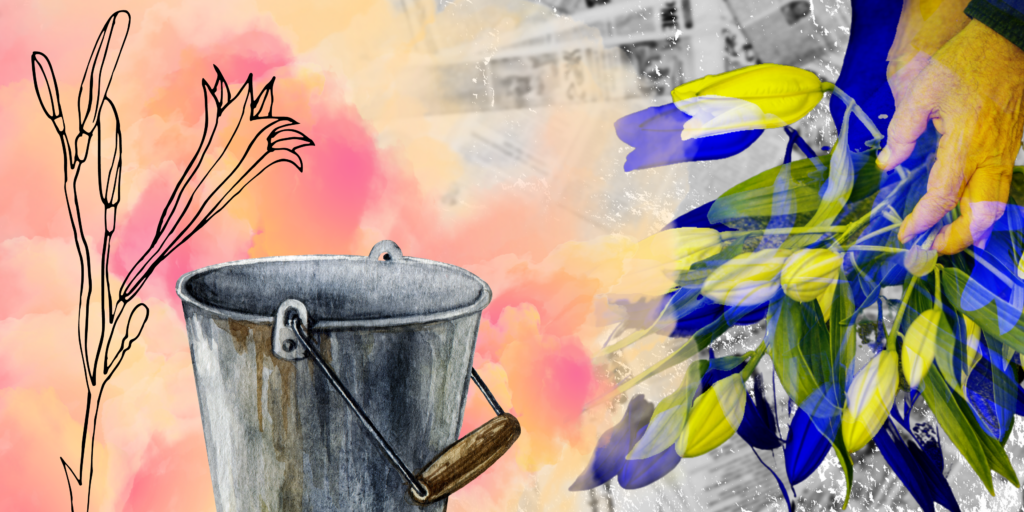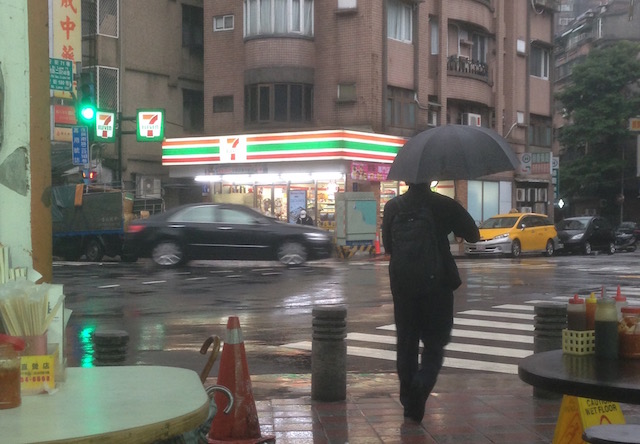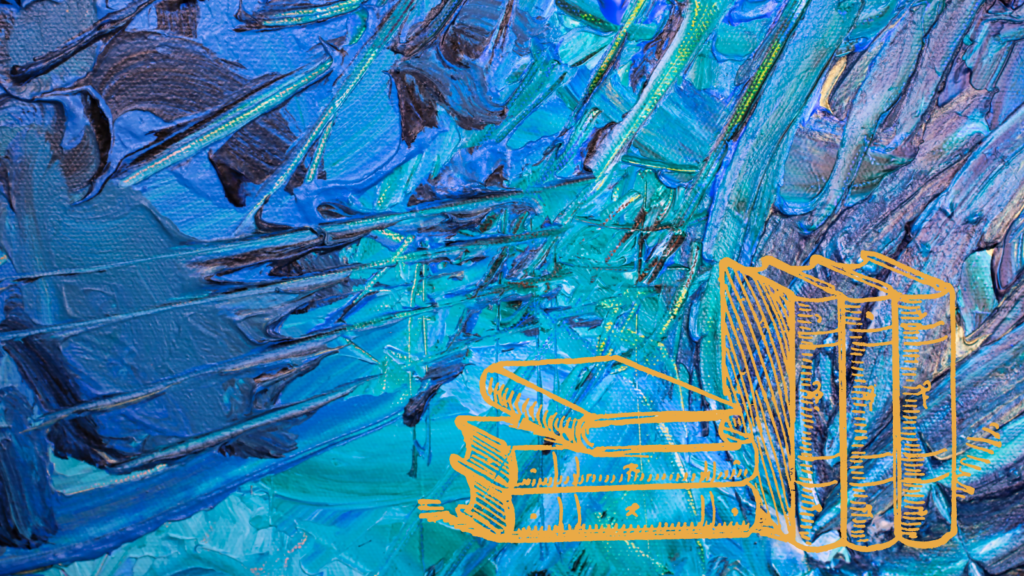Killed by the Gestapo 70 years ago, today, special agent Noorunisa Inayat Khan inspires with messages in code. A reflection and poem.
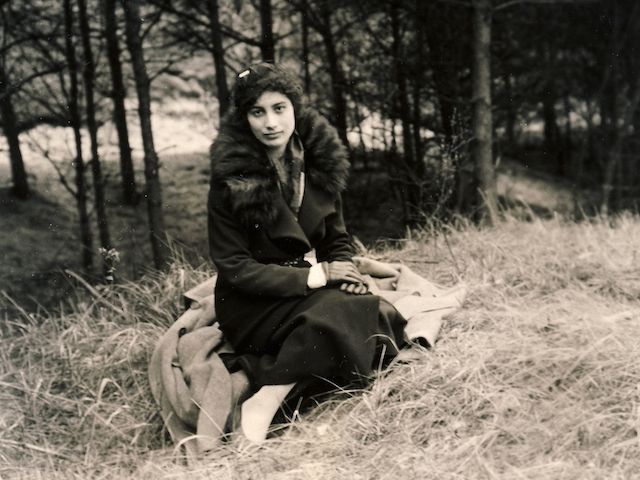
September 13, 2014
Three summers in a row, now, she’s appeared. The first time, in 2012, on a redwood mountain forest in California, overlooking Monterey Bay. Her dark hair, cut in bangs, floated about her face, which was pale as a faded photograph. In the small of her throat hung a silver amulet—HU, it spelled in Arabic calligraphy, meaning Divine essence. You, like him, are of the angels, she whispered to me in that early-morning dream. I didn’t know then that she worked in code.
Last year, she manifested as sound. Bavarian Forest, she said, borrowing my voice. The words spilled out of my mouth of their own accord, waking me up, one mysterious morning in Istanbul. Hollowed out from a month of fasting, it was true the sea, the sky and the ancient city swam within me, but still, the words and the way they’d risen up from deep inside were an enigma, as was the sudden urge to visit this amorphous forest. Googling and hopping from one hyperlink to the next, I quickly discovered that she’d died in Bavaria.
Noorunisa Inayat Khan (1914-1944) was a writer of children’s stories, a poet, a harpist, a dreamy, quiet, determined young woman. The daughter of an American mother and an Indian father— the musician and Sufi mystic, Hazrat Inayat Khan—she was raised in France, the eldest of four siblings. When Hazrat Inayat Khan died suddenly in 1927, during a trip to India, Noor took on, with self-sacrificial devotion, the care of her siblings and her mother, who’d slipped into a severe depression.
By the start of World War II, Noor was a rising author, with stories appearing in Le Figaro, and a book of reimagined Buddhist fables, Twenty Jataka Tales, recently published. Although a pacifist, Noor could not abide the growing injustices of the Nazi regime; she felt it her spiritual duty to act. In 1940, as Germany turned its gaze on France, the family left their home of 20 years for England, where Noor joined the war effort, first as a nurse, then as a radio operator in the Women’s Auxiliary Air Force. She excelled in her training and was selected for advanced signals and wireless courses, and, eventually, called to interview as a secret agent at the Special Operatives Executive (SOE)—the ‘Ministry of Ungentlemanly Warfare,’ Churchill called it— which through sabotage and subversion supported the resistance movements in occupied countries.
On a full moon night in June 1943, Noor traveled by Lysander aircraft into German occupied France. She was the first woman radio operator to be dropped there, her life expectancy in this role anticipated to be six weeks. Noor, however, transmitted encrypted messages from Paris and its environs for 4 months. But mere days before she was to return to England, she was betrayed. When the Gestapo captured her, Noor was the last remaining link between Britain and the Resistance.

In the summer of 2013, I booked a flight and visited her over the Eid holidays, in that factory of death: Dachau. From naked room to naked room, I went, staring at the ceilings, the floors, the gutters, looking for a sign. In the crematorium, when my eyes fell on a plaque bearing her name—the sole plaque on those bare walls, honoring her courage— she’d posthumously been awarded the George Cross medal and the Croix de Guerre for bravery— I wept, wracked by a strange, irrational recognition.
Each morning in Bavaria, I’d look at the sky and discover a message in the contours of clouds, inviting me back to the death camp, with a tenderness I have come to associate with her. On my visits, I walked discombobulated, unable to tell if she was seeing through my eyes, or if I was seeing through hers, as she wordlessly intimated her last moments to me.
Then, a little over two weeks ago, she summoned me to Suresnes, to Fazal Manzil, her family home on the outskirts of Paris. My life rearranged itself, miraculously. I sensed I was being guided, towards something. Something more than the story of her death, it seemed; something in addition to, and more subtle than her heroism. As I stepped out on the landing of the ancient stone house, gazing at the rose bush, the tall grass, and the now-built up land beyond the green iron gate, trying to imagine the sounds and smells and sights of Noor’s youth, her sister-in-law’s dog, Chloe, pranced up and began nuzzling my fingers.
I had just spent an hour inside, sitting cross-legged on the floor of the living room—the historical Oriental Room as it is endearingly known amongst the Sufis—soaking in the deep silence; marveling at the large portrait of Hazrat Inayat Khan lit up spectacularly by sunbeams piercing through the white lace curtains; waiting… waiting in the stillness for Noor. Now outside, I knelt before Chloe, who licked my face extravagantly. The wind shirred the leaves; for a moment on those solid stone steps, time and place jigsawed. I was no longer in a serene Parisian suburb, but transported; hovering between past and present, grappling with the idea of home. Home: its legacy surrendered to migration, to war, to its reinvention on new shores. I breathed in the deep green of the garden.
I could stand here forever!
Yes, I answered her silently. Yes, I understand.
It wasn’t the rooms she’d summoned me to. But, to this spot, this vantage point: the threshold. This is where she, young and alive with hope, spent long hours contemplating, looking East to the lights of Paris, as war encroached. I sensed Chloe’s warm welcome reach through my hands to her, even as I sensed, in the wind that rustled the trees in the garden she tended with loving care, the restlessness of a young woman brimming with idealism.
This house had drawn the world in through its doors, her father’s presence and teachings serving as a magnet. But, war clamored. Soon, the curtains would be drawn, the great doors shut. Which side would she…. should she choose?
There I stood, at the threshold of her possibilities—home or the world? family or country? Ahimsa in the face of tyranny or active service to liberty?—intimating why she chose to meet the world.
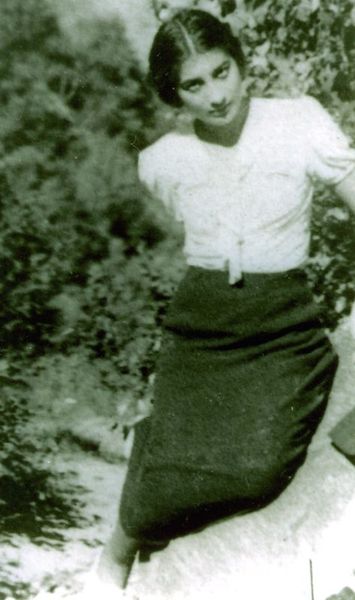
Bavarian Forest
Noor-un-nisa Inayat Khan (1914-1944) worked for sixteen weeks as an undercover radio operator in Nazi-occupied France, transmitting encrypted messages between Britain and the Resistance, before she was betrayed and captured. Noor endured a night of torture but released no information to her interrogators. Her last word was: liberte.
I
They tossed you a dead boy’s wooden shoes—
weighted as dhows for feet bound in infancy—
then nudged you on for the long walk:
forever of gravel; sinister ditch stretching to nightfall.
You paused before the plaque on the streaked wall—
Don’t forget to wash your hands— and smiled
into the cement face
of the man leading you
to the kennels.
A sign clear as air
sprung in those words—
not a command but comfort—
tender memory of Abba’s daily ablutions;
song of running water
II
Each footstep a sharp burst
followed by an exquisite shining
you scanned the open sky, heart
turning and turning
breath singing
metronome of pain carrying
you closer to the one
whispering desire.
And even the earth
sent up its signals
receiving each stab
of wooden boot
ground into gravel
reminding you
there was still so much
of you,
more song
still folded within
each indignant footstep
faz-l faz-l faz-l
transmitting currents of love
like all those years ago
strolling in the garden in Suresnes
Abba telling you about telluric magnetism
III
Night bleeds into purple sky
the SS doesn’t mind time
tonight, doesn’t stop you from turning
to greet poplar leaves
seeping the nectar
of a dying season
fragrance sending you
back to a summer
braiding twine and twigs
piercing the silk of petals
hands filled with desire
sewing in each stitch
of dreamwork
sensation of him who knew
you better than you yourself
field chief, fellow fugitive
ferreted home by the August moon.
Fingers spent with love:
Babuly,
where did you hide
your fairy objects?
IV
All quiet
but for the bitter
grind of gravel
then just like that
the distance of two barracks
he turns
and flicks the collar
of your blouse
you hold your face blank as a blue sky—
years of practice, flights of breath
anchoring stillness—
who knew
it would be for this
knowing
sunk inside
V
Sparrows skitter
over grass
alighting
a sudden uplifting,
memory loosened
of the Lysander’s wings tipped
silver black against the full moon
Paris stretching and twinkling beneath
surge of fear adoration hope
Morse code flashing the landing strip
fingers clamped over luggage.
Eagles in flight elsewhere and you,
Bhaiya, in my mind’s eye,
exulting with the golden one:
vast-winged, silent raptor
VI
Waves of you surround me; fill me.
I a visitor,
here via so many elsewheres,
still, you settle into me
VII
Amma Fazal Manzil Monkey-bridge:
your words in my mouth
my fingers traced the swooping
calligraphy of your letters
in September
tales of animal guides, fragrant martyrs
apparitions sitting unbidden on my tongue
I read the air the leaves for signs
VIII
Notes of your song everywhere
dissolved into the sickness of these walls
its melody hovering between hooks, oven, noose
infusing me touching me
here I am Babuly, standing before you
standing before—
IX
the crematorium
X
the tiled floor of the chamber, outfitted with drains. square windows flush to the ground—too tiny to creep out of—silvered over with cobwebs. occult altar: death against the wall, death by hanging, by gunshot
in front of the raging flames;
at the back of the room,
behind the ovens.
Babuly, did you hear the barking dogs?
Did you see that tree?
Tall green evening rain
XI
Once, you weren’t sure
how to be in this world,
heart hovering
above earth occupied
by intimations from aerial realms—
unflinching faith in fairies
that inhabit the flowers in Gordon Square—
until the shock of other people’s laughter banished them forever—
later, fancied you were Rabia, the ascetic,
eyes skin bones
lit with silent yearning
wanting only the subtle
invisible press of Love
not a man’s hands
not until last summer
all your worlds coming together,
finally
XII
June 16, 1943— you caress the delicate bird pinned to your collar, breathe in scent of dogwood and honeysuckle. En route to the pilots’ mess; you can hardly believe it. Fields of corn, marguerites, singing larks
XIII
‘Pianist;’ harpist; writer of children’s stories—
interpreter of sacred mysteries—
mistress of Morse: code-name Madeleine—
You land by Lysander, bathed in the light of a full moon.
You say: how heavenly home looks from the skies, by the light of the moon!
XIV
You clambered trees in Paris, threaded your antenna artfully
spent restless nights
recalling the rehearsal
of melding voices
the closest union now
working those same words
on your tongue in silence
forging them into something
like an iron song
of nation of fellow fugitive
earthly embodiments—of ethereal ideals—
by their very nature
tainted
XV
You swallow the gravel
of betrayal—O Babuly, for a 100,000 francs,
Renee Gary, jilted, sore with love
for the field chief,
sold your secret—
yet swear
you would do it again
and again, not change
any of it, not especially pain.
July, you unbraid yourself
release him by moonlight
let him fly back to his first nest.
And enter silence
XVI
Transmitter of encrypted secrets. First woman radio operator flown into Nazi-occupied France. Last living link between home and Resistance
XVII
September moon. A letter from Amma and a can of sardines. You clutch the tin, hungry for Amma’s touch, fingers skimming the cold surface, held once by her hands. Over and over you read her words stitching the severed pieces of your heart
XVIII
And now here you are
yet another station
this a low-ceilinged squat building
mayhem of boots rough-hewn
caked with mud outliving
the wayfarers’ journey
he points with his chin
and you slip out of yours
lining them up with the rest
cold scabrous cement
messages surging through
the gauze of your feet—passionate
yearning love—ishq—
this open door, your last—
you intimate from acrid odor—
right foot first—
tender, careful, this final threshold—
and then—
XIX
you see the pebbles caught this way
and that in the steel grate,
hints of azure, forest, sun, intricate pattern,
and recognize
in the arrangement, a secret
last bits of beauty the eye witnesses
XX
You received his boots
on the back of your knees
buckling
into the earth’s hard embrace
tight tug of love
claying and unclaying with each breath
made yourself sacrificial
a tender thing soft
like a lamb bloodied, bashed
for liberte,
a war you claimed
and made your own
waged on the topography
of your body—
intersection of heaven and earth
XXI
When he cracks you open
violet blood of flowers,
echo of ancestors
in your eyes
a symphony of unseen beings
summoned
a stream of eternity
unspooled
by his brute work
XXII
Years collapse
parsed
then broken
into this single night
the bruised lip of silence
adamant refusing
to reveal its secrets
XXIII
Inside, what vision erupted
broke through
each breath
and kept your lips sealed?

